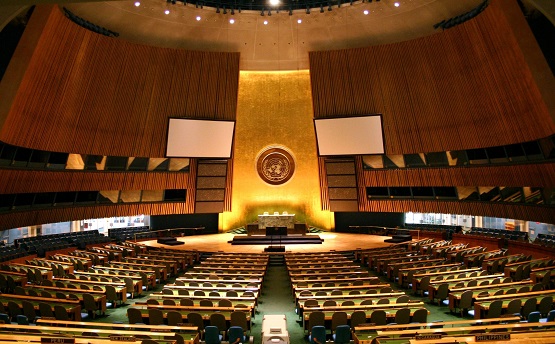The latest attack on a country’s protection of preborn children from the violence of abortion comes from the 52nd session of the United Nations Committee on Economic, Social and Cultural Rights (CESCR) during review of El Salvador’s report. The treaty body is supposed to monitor compliance of the International Covenant on Economic, Social and Cultural Rights (ICESCR) which recognizes that “the inherent dignity and of the equal and inalienable rights of all members of the human family is the foundation of freedom, justice and peace in the world” and that “these rights derive from the inherent dignity of the human person”, but instead the CESCR was critical and judgmental of El Salvador’s protection of preborn children from the destruction of abortion.
In its observations following El Salvador’s report, the CESCR urged El Salvador, the State party, to “review its legislation with regard to the total prohibition of abortion to make it compatible with other fundamental rights such as health and life of the woman, as well as with their dignity.”
 Six of the eighteen committee members—described on the CESCR website as “independent experts who are persons of high moral character and recognized competence in the field of human rights”—were highly critical of El Salvador’s ban on abortion and its 1999 constitutional amendment “to defend the right to life from conception”. Committee experts revealed their pro-abortion bias as reported in the official summary of the review.
Six of the eighteen committee members—described on the CESCR website as “independent experts who are persons of high moral character and recognized competence in the field of human rights”—were highly critical of El Salvador’s ban on abortion and its 1999 constitutional amendment “to defend the right to life from conception”. Committee experts revealed their pro-abortion bias as reported in the official summary of the review.
It was noted that CESCR member Maria-Virginia Bras Gomes of Portugal called El Salvador’s ban on abortion a form of “discrimination against women, a violation of the right to health” and charged that it “constituted failure on the part of the State to provide for those most in need”.
Expressing contempt for belief in the dignity of life, Colombian Alvaro Tirado Mejia attacked El Salvador for the belief that “life was still considered to begin at conception” and expressed his regret at what he called “the apparent regression of government policy regarding sexual and reproductive health”. He also asked “whether the Government was making any efforts to change its policy, in step with several other countries in the region” and if the State would comply with the recommendations of the Committee and “other entities in that regard”.
The disdain for El Salvador’s protection of the dignity of the human person from conception hit a low for arrogance and intolerance when Waleed Sadi from Jordan demanded to know if El Salvador’s abortion policy was “guided by religious or cultural considerations”. Heisoo Shin from the Republic of Korea claimed that the prohibition of abortion had “dire consequences for women’s health, life and freedom” and urged the State “to do everything in its power to change its policy” on abortion.
Responses from the official El Salvadoran delegation included disappointing comments that agreed with the charge that the 1999 constitutional recognition that life begins at conception was “regressive”. Delegation member Velásquez Centeno, in official response for the government stated that “Salvadoran law had regressed in respect of abortion” explaining that there are no legal exceptions as in the past.
Comments from Delegation member Velásquez de Avilés included an explanation that abortion was “an issue that generated huge passion, analysis and discussion in El Salvador which was a very traditional and conservative country” while she called the present law on abortion “repressive”. She spoke favorably of the work of NGOs and others in El Salvador who since 1999 have “lobbied tirelessly for legal reform”. She explained that with civil society support the Minister of Education was “spearheading a campaign to raise awareness of sexual and reproductive rights”.
In the ongoing dialogue between El Salvador and the Committee, CESCR member Sadi wanted to know “what forces had been at work to cause the backtracking on the State party’s previous abortion policy.” He viewed the low number of convictions for abortion as “inconsistent with the strictness of the law” charging that it sent conflicting signals concerning the State party’s commitment to the legislation.
CESCR expert Bras Gomes wanted to know why the delegation had described El Salvador as a “traditional or conservative society” and questioned if the delegation knew society’s current views on abortion and if El Salvador had ever carried out a “dialogue on women’s right to sexual and reproductive health” as recommended by the Human Rights Committee in 2010.
PNCI notes that some CESCR committee members simply could not remove their pro-abortion lenses to see that El Salvador is in compliance with the CESCE provision to provide “for the healthy development of the child” by preventing the death of children through abortion. To urge El Salvador to legalize abortion is to force it to act counter to the treaty, the task they are supposed to fulfill. The treaty recognizes “the inherent dignity and of the equal and inalienable rights of all members of the human family” yet the CESCR views the lives of the youngest members of the human family as expendable.
The comments and official observations of the CESCE demonstrate profound disrespect for the sovereign laws and cultural and religious beliefs of El Salvador. Such statements distort the CESCR treaty and are emblematic of the growing and disturbing intolerance by UN entities toward national laws and policies.
The people of El Salvador are among the most pro-life in the world according to the Pew Research Center’s 2013 Global Attitudes; 85% of El Salvadorans said having an abortion is morally unacceptable. They deserve respect for believing in the inherent dignity of the human person, not disdain, from the CESCR.
LifeNews.com Note: Marie Smith is the director of the Parliamentary Network for Critical Issues.







